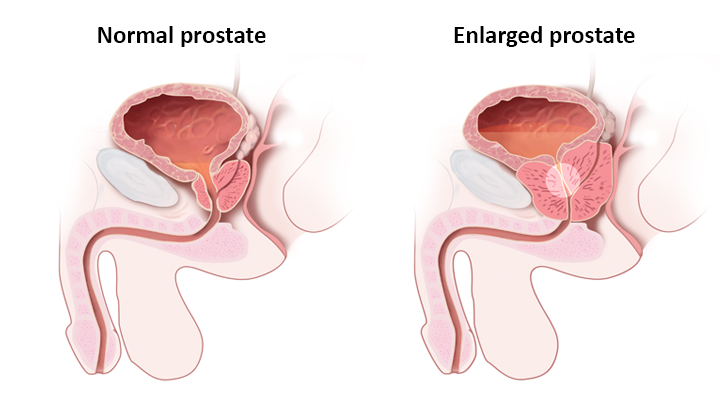Many people think that an enlarged prostate (BPH) and prostate cancer are associated, but the simple answer is: No, they are not. Professor Ralph Peeker explains the concepts.

With age, most men’s prostates grow. But an enlarged prostate (BPH) has nothing to do with cancer.
These two conditions both start in the prostate, but that’s more or less the only similarity. BPH is a condition that almost all men will get if they are lucky enough to enjoy a long life”, Ralph Peeker explains.
BPH starts in the central part of the prostate gland while prostate cancer tends to start in the peripheral zone. Both conditions are quite common, affecting elderly men, so it’s possible to have or get both, but they don’t cause each other.
What are the signs of an enlarged prostate?
With BPH you probably need to empty the bladder more often than before, also during the night. It’s common with incomplete voiding which in worst case can develop into total urinary retention, meaning you can’t get the urine out at all, Ralph Peeker says.
There are effective treatments for BPH, both surgical and medical. Sometimes there is a waiting time for surgery and it may be necessary to use intermittent catheters for emptying the bladder in the meantime. This method can also be used continuously to ensure complete emptying.

Symptoms
“Until recently we thought that prostate cancer and BPH showed the same symptoms – urinary issues – but in fact, recent studies show that men with urinary problems are less likely to get prostate cancer in the future”, Ralph Peeker says.
A person with prostate cancer can be totally symptom free which sometimes makes the disease hard to localise. The first symptoms can linger until the prostate cancer generates metastases in the skeleton or other parts of the body, and causes pain, or anemia due to the generalised disease.
The only way to find out if you are affected is to visit your healthcare professional for an examination and a blood sample.
PSA test
PSA (Protein-specific antigen) is a protein that is secreted by the prostate gland. PSA is normally present in the blood but the level increases with age and is most often significantly raised in both BPH and prostate cancer.
“There are on-going discussions about screening programs like the ones that are common for breast cancer, but no decisions are made yet" says Ralph Peeker.
This video is a short teaser from the interview with Ralph Peeker
To find out more about the similarities and differences between BPH and Prostate Cancer, click the button below to watch the full video with Professor Ralph Peeker.
Click here to watch the full interview with Ralph Peeker